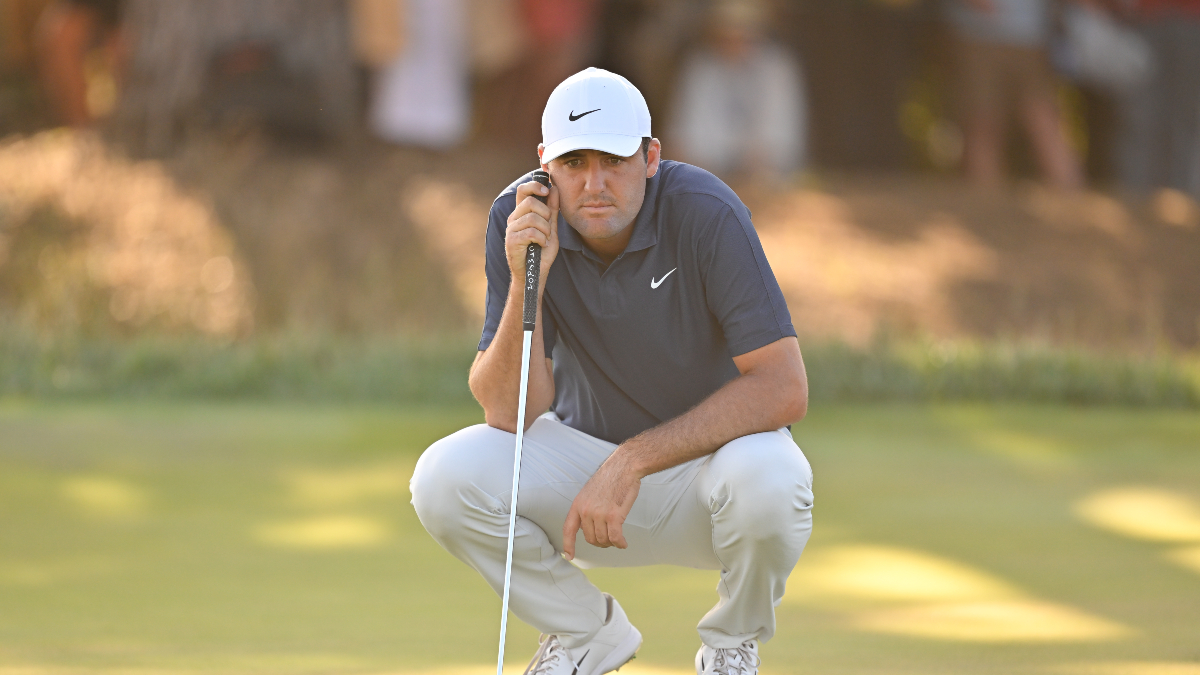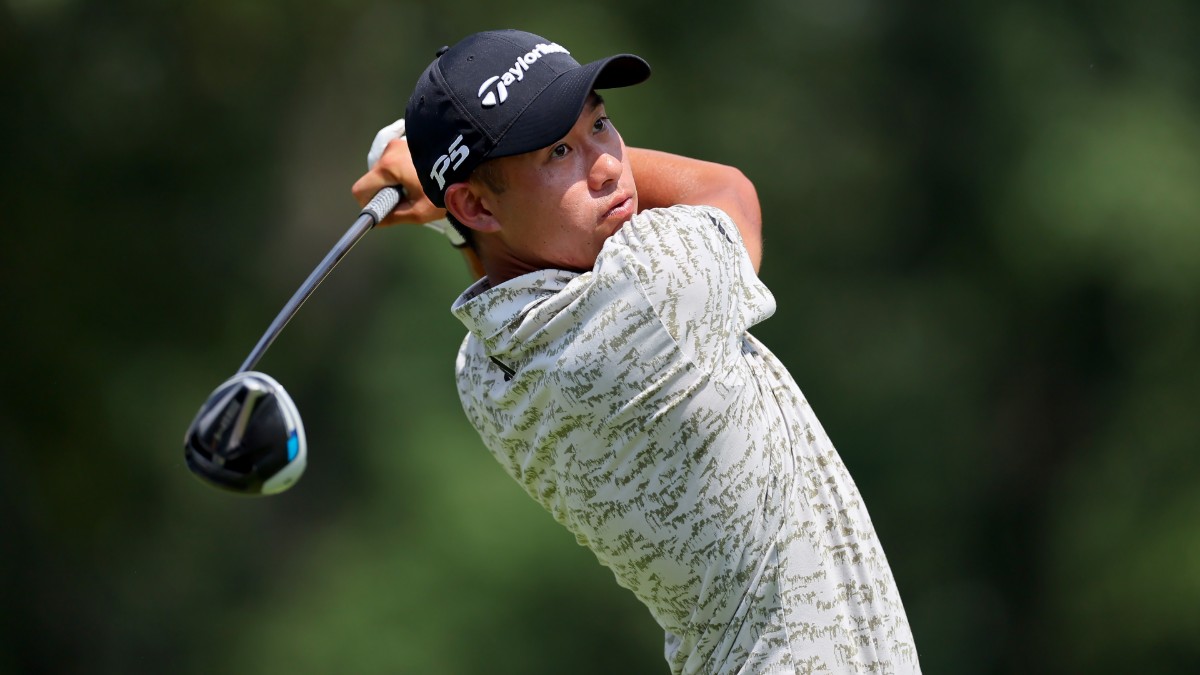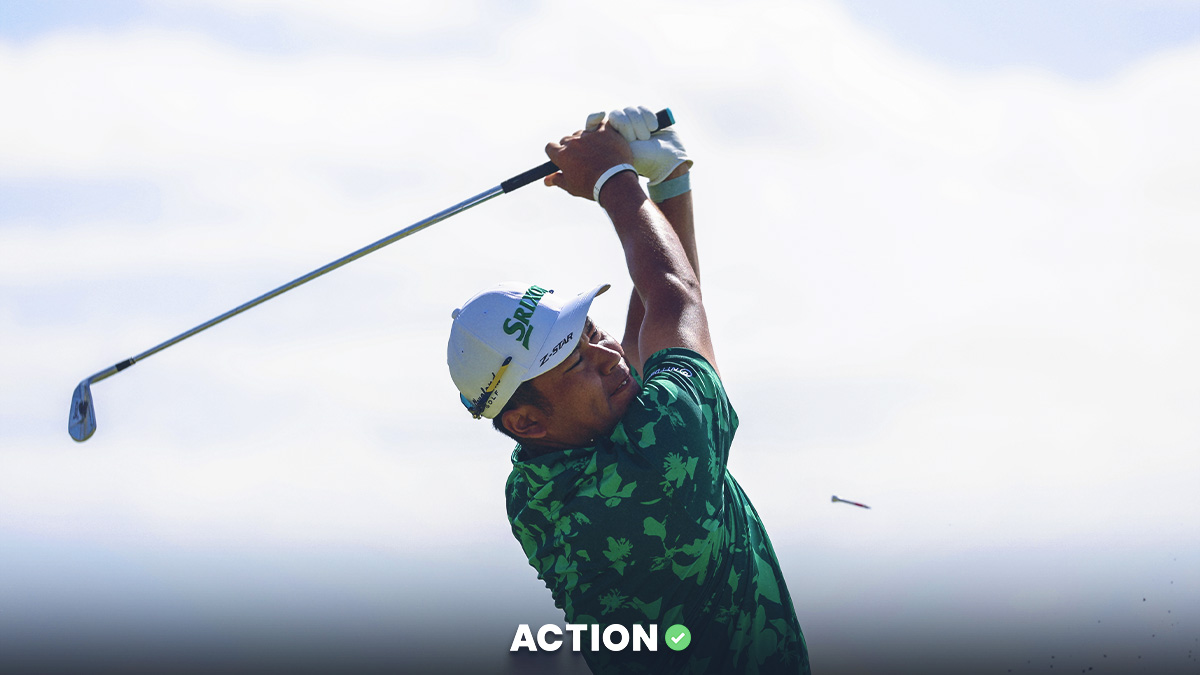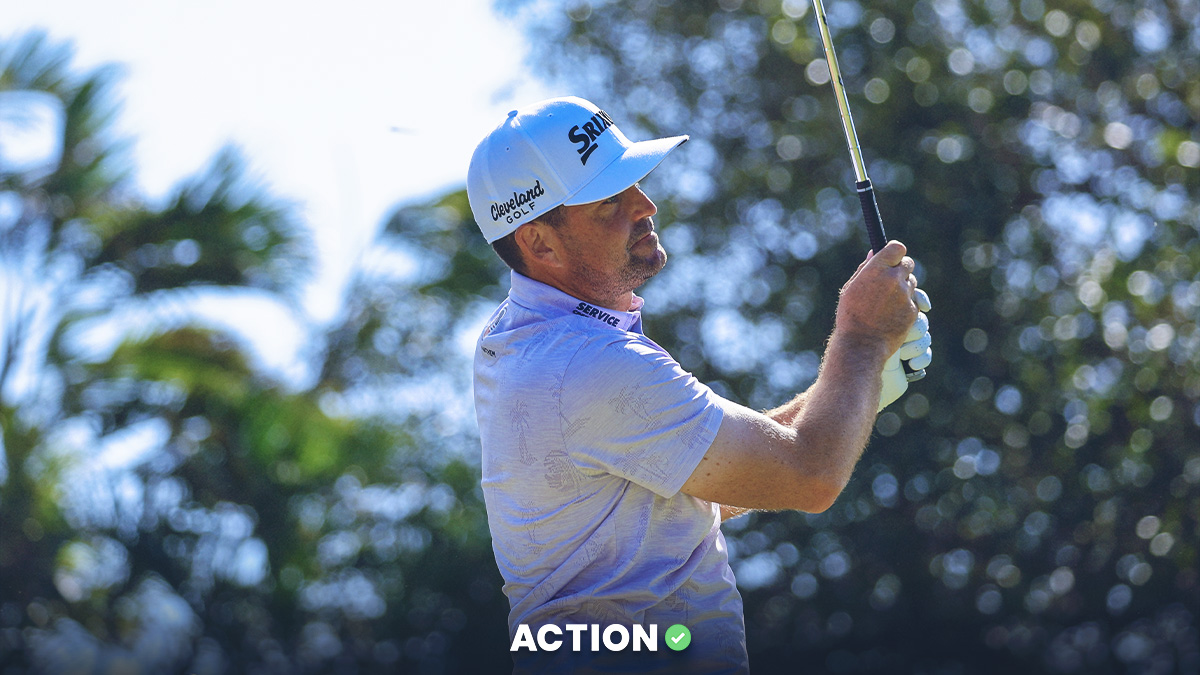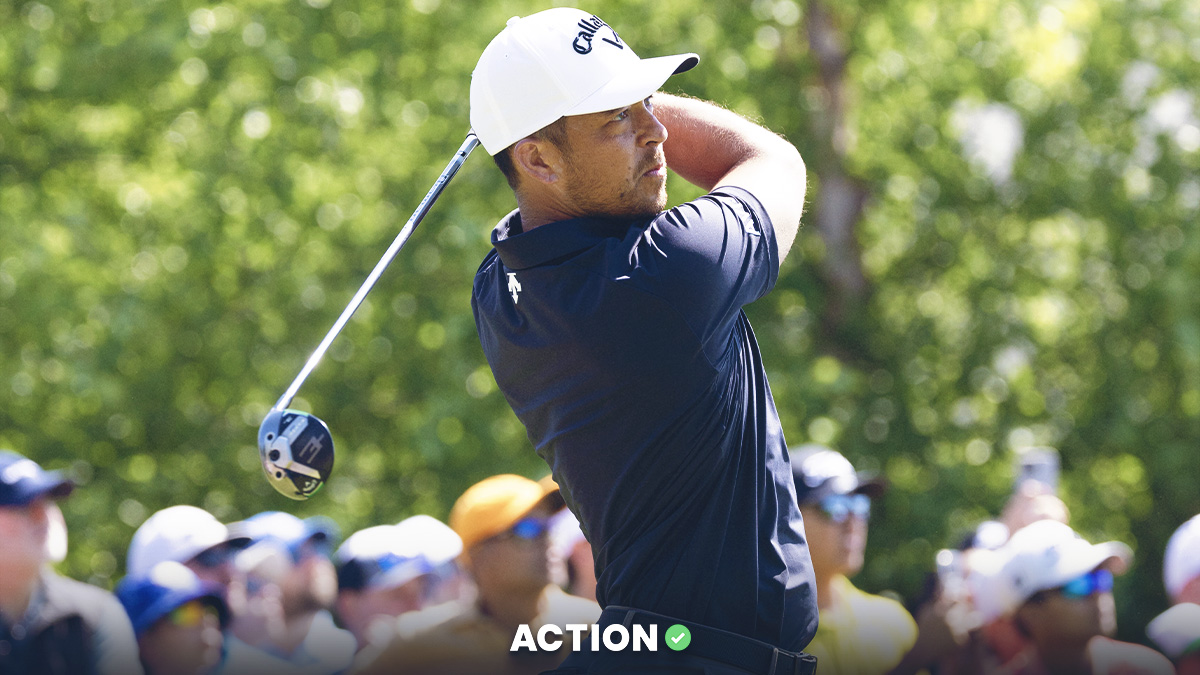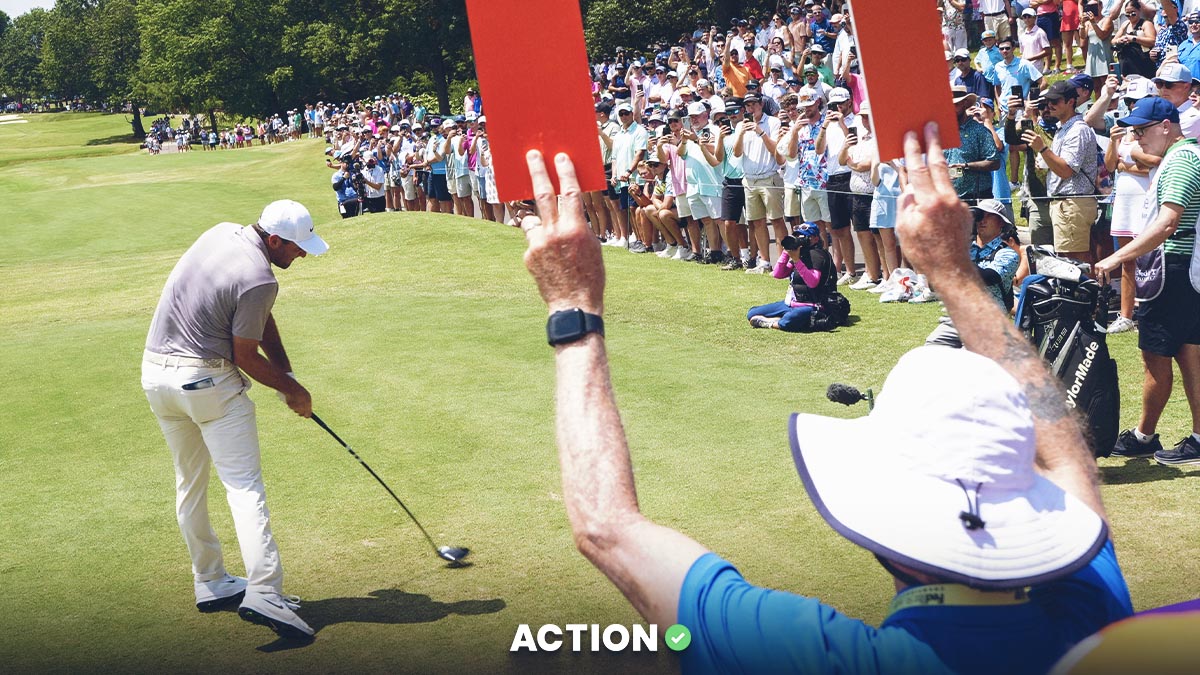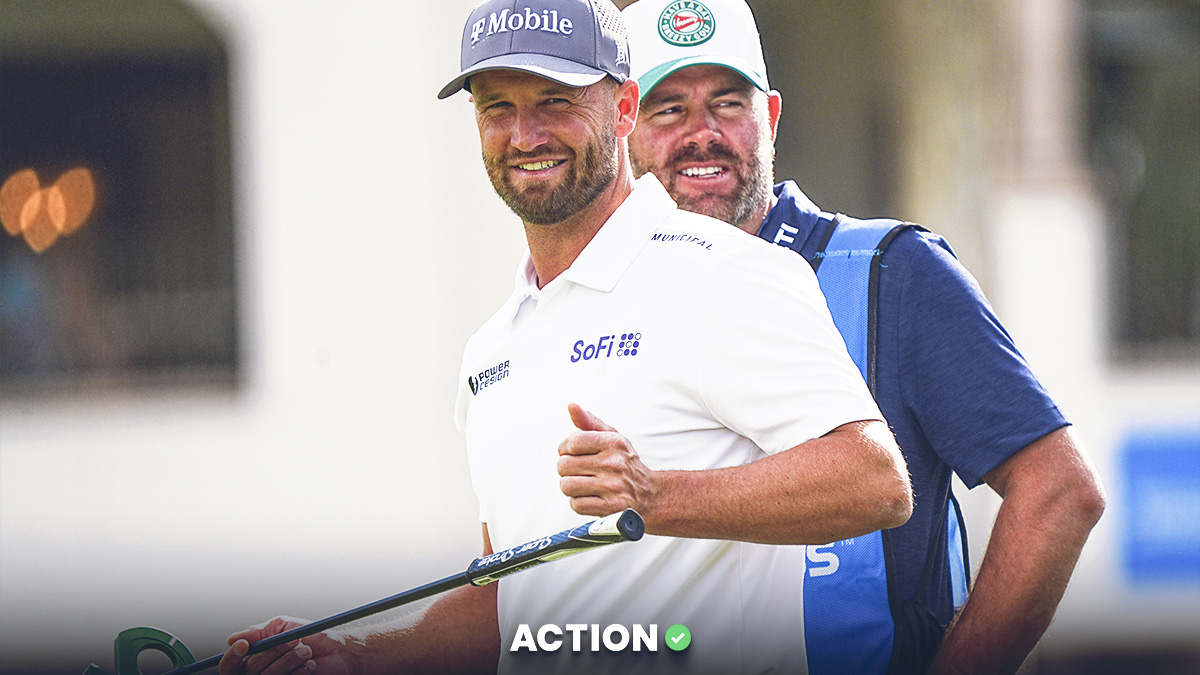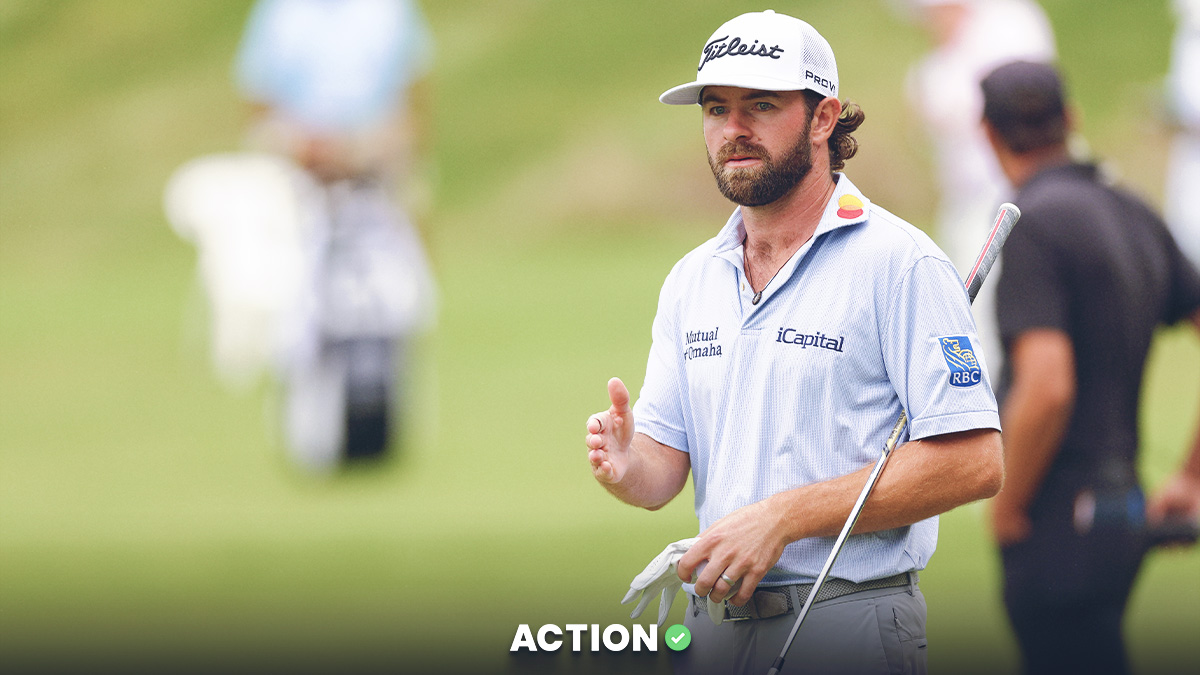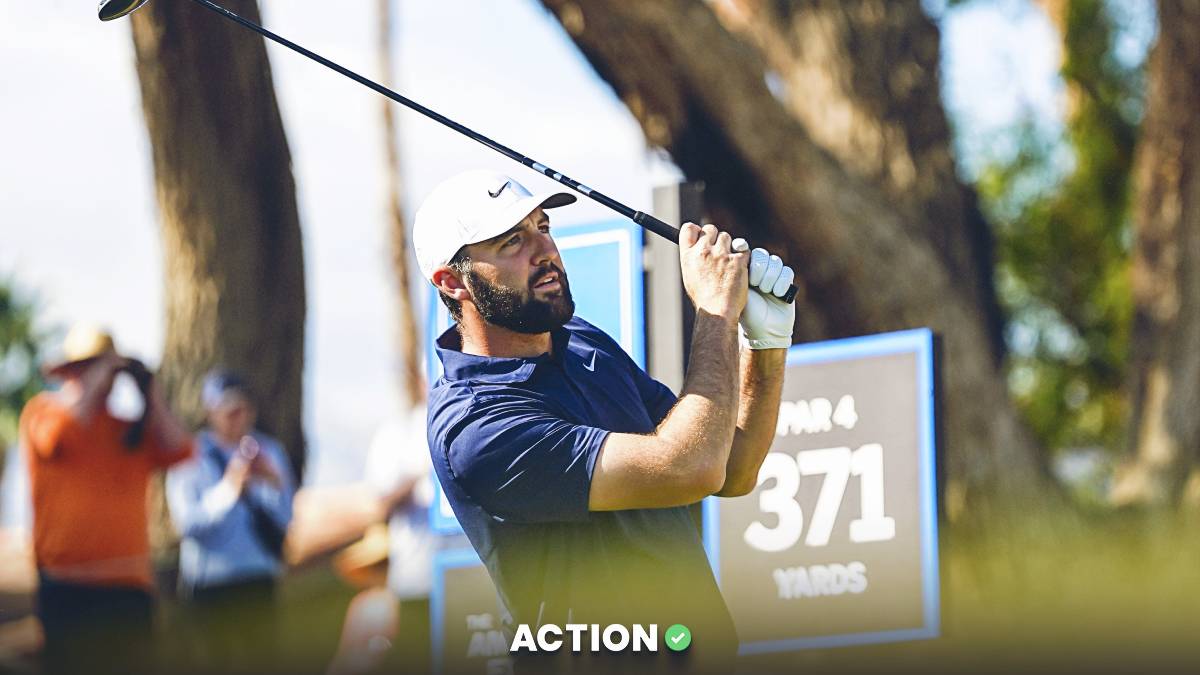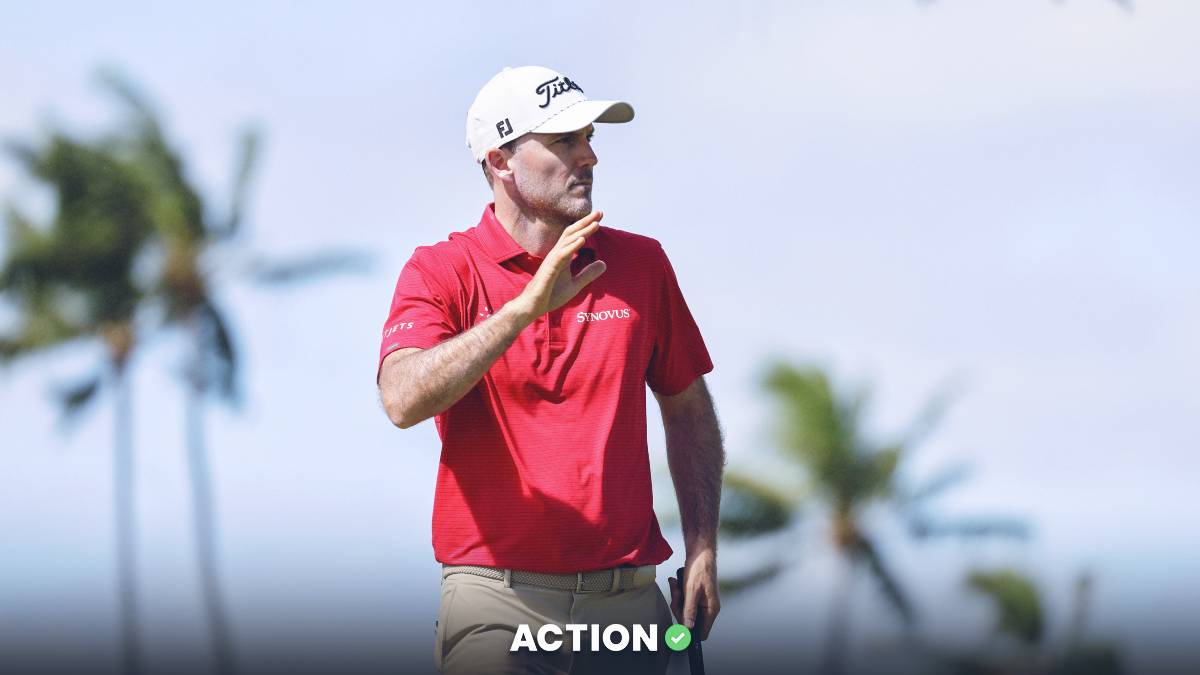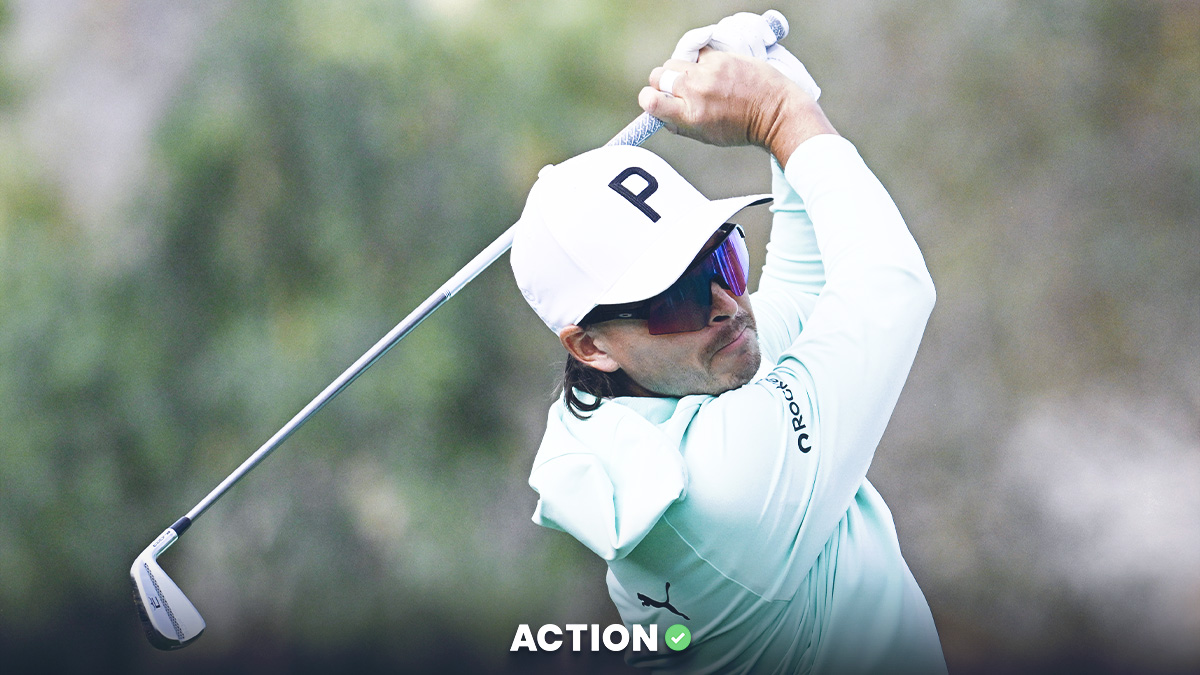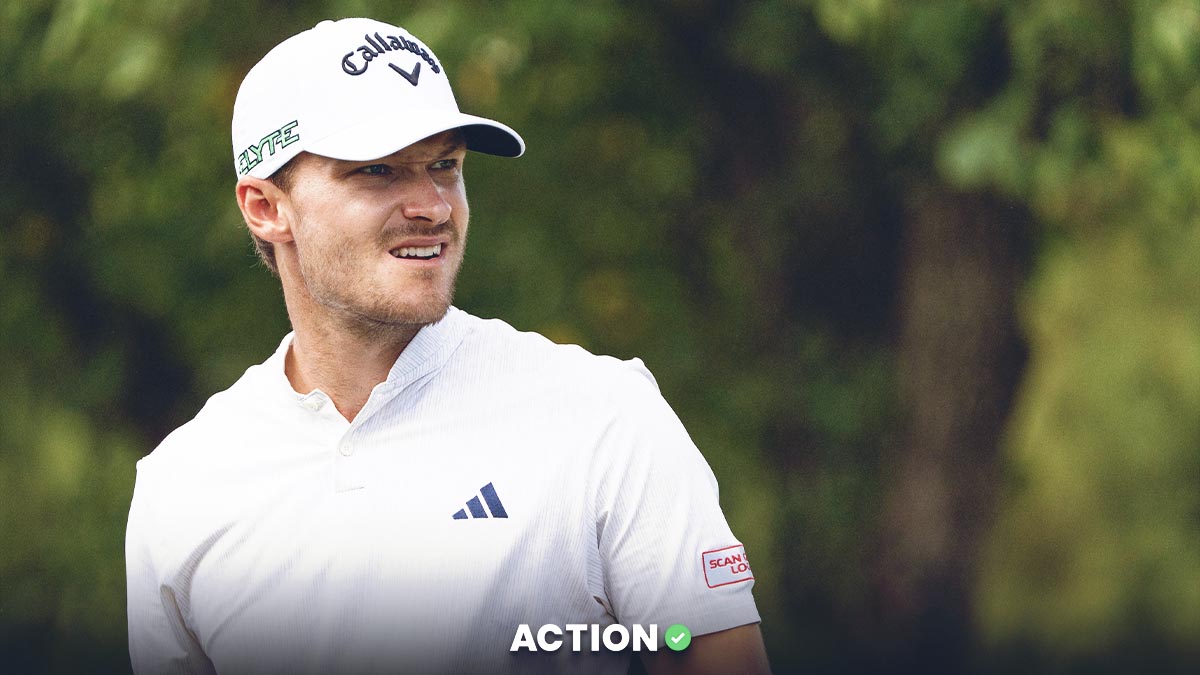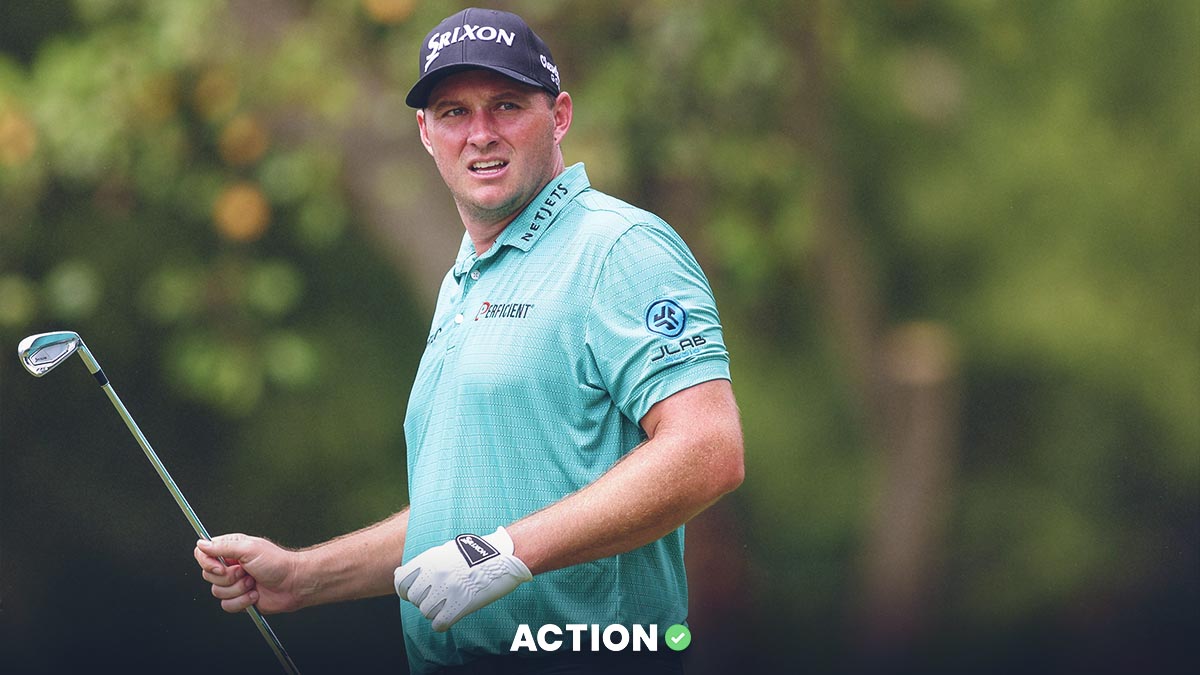ATLANTA – A few years ago, I started writing a 10 takeaways column following each of the major championships as a quick way of hitting a bunch of topics in the immediate aftermath of those events.
As Viktor Hovland claims the FedEx Cup title to close out the PGA Tour season, here are 10 takeaways on the last 11-and-a-half months and 47 tournaments.
1. Winning Majors Isn't Just For the Superstars
One of my favorite 19th hole parlor games is: “How many majors do you think [insert superstar player] will win in his career?” Invariably, nothing ever adds up. Put a numerical value next to each of these players’ names and unless they start playing nine of these things every year, you’ll almost always overreach on these numbers. That’s not the only reason, though. It might not be a hard-and-fast rule, but this year once again proved that for every one of these superstars who claims another major championship, there’s a player from the next tier who can play the best golf of his life on a massive stage.
Nobody should’ve been surprised when Jon Rahm and Brooks Koepka added to their major resumes, but the triumphs of Wyndham Clark and Brian Harman served as reminders that these events are hardly only the domain of superstars and that there are so many players who can win at the highest level. This idea will come up plenty next year, when we collectively ask how Rory McIlroy, undeniably the most talented player of the past 10 years, will have gone a full decade without winning a major.
There are many rational, analytical answers to this question, but foremost among them is the notion that there are only four each year, they’re not easy to win, and more players are capable than we often recognize. This year’s results were another prime example.
2. A Historic Season For Scheffler
Despite his struggles at the season finale, it was a historic season statistically for Scottie Scheffler. As you already know, he was great tee-to-green and, well, not so great with the flatstick. Even so, his SG: Total number of 2.502 (entering the Tour Championship) served as just the seventh time in the last nine seasons that a player gained more than two strokes on the competition over the course of an entire campaign and was the second-highest number, behind only Rory McIlroy in 2018-19.
From tee-to-green (a stat which for some reason also includes around the greens, not just ball-striking), he was nearly a full stroke better than last year’s top player, Will Zalatoris, and better than everyone else over the past half-decade, dating back to Tiger Woods in his prime, ranking as just the fifth player to gain more than two strokes in this category during this time period.
Then there’s perhaps my favorite stat, if only for the reason that it’s gone overlooked considering his ball-striking. Scheffler ends the season leading the PGA Tour in both Round 1 scoring average and Round 2 scoring average, which could be categorized as some sort of anomaly, but really highlights his consistency throughout the entire campaign.
3. The Sky Is The Limit for Hovland
Minutes after losing the PGA Championship due in large part to a 70th-hole double-bogey, I watched Viktor Hovland sign his scorecard, give a quick interview, and leave the premises. Usually a happy-go-lucky sort of guy, he was understandably frustrated, but the story written on his face wasn’t one of just disappointment over not winning.
I’m sure I could be reading more into it than it was, though I couldn’t help but think something clicked within Hovland during those moments – that he finally realized how much this all means to him, how much he burns to win, and how much he didn’t want to feel the way he was feeling in the aftermath. Two weeks later, he won the Memorial Tournament.
Prior to the recent FedEx St. Jude Championship, he was clearly grinding as much as anyone on the practice facility, as if he was searching for something in his swing. Not coincidentally, the following week culminated with him posting a back-nine 28 to win the BMW Championship, then winning again at the Tour Championship and claiming the FedEx Cup title.
It’s not much of a hot take to suggest that the sky is now the proverbial limit for Hovland, who’s probably usurped the likes of Patrick Cantlay and Xander Schauffele in the “Best Player Without a Major” debate. Sure, every player seems like a world-beater in the shadow of momentous success, but it’s hard to believe Hovland isn’t closer to becoming the game’s best player than he is to severely regressing from his current form.
4. What Type of Success Do the Players Value the Most?
I’ve always believed the PGA Tour’s Player of the Year race is a hot topic which ultimately feels anticlimactic because we’re into the next part of the schedule by the time a winner is announced. This time, however, the conversation might have a little more staying power, since the results – as voted on by the membership – will tell us what the players themselves value the most.
Scottie Scheffler, as outlined above, was easily the best player from any statistical measure and the most consistent at a high level, though only parlayed that performance into two early victories. Jon Rahm captured a major and the most wins with four, but was largely a non-factor down the stretch. And Viktor Hovland wasn’t the best for much of the season, yet did the most when it mattered the most (to some, at least), adding titles in the final two playoff events.
I think the eventual results will tell us less about which player was actually the “best” during this season and more about what their peers deem to be important.
5. Golf Can Be A Fickle Game
How fickle is this damn sport, even for those who compete at the most elite level? Try this: Patrick Cantlay, Tommy Fleetwood, Xander Schauffele, Tyrrell Hatton, Collin Morikawa, Sungjae Im, Denny McCarthy, and Adam Scott combined for a total of zero victories during this season.
Before you accuse me of simply using a representation of players who underperformed, understand that each of these guys finished inside the top-20 in SG: Total for the campaign. Add in the much-publicized toil of Justin Thomas, plus Jordan Spieth, Hideki Matsuyama, and Shane Lowry, and we can put together a veritable all-star team of Ryder Cup roster proportions that failed to win a single tournament in some 250 combined efforts.
6. Underwhelming Rookie Class
Some seasons are big for PGA Tour rookies. The 2021-22 season was one of ‘em, with Cameron Young, Tom Kim, Sahith Theegala and Davis Riley among those proving they owned plenty of staying power in the big leagues. This one? Not so much. Only two rookies won – and if you can instantly recall they were Nico Echavarria at the Puerto Rico Open and Vincent Norrman at the Barracuda Championship, then you’ve been paying more attention than most observers.
Others included Taylor Montgomery, who started red-hot, then flamed out; Thomas Detry, who showed some impressive flashes; Ludvig Aberg, who admittedly is a budding superstar but didn’t have much time after leaving college; and Eric Cole, who was the lone rookie to advance to the second FedExCup playoff event.
None of this is to suggest that this rookie class won’t someday be considered more fruitful collectively than it has been so far, but it’s noteworthy to realize the ebbs and flows of such matters, that one year after an impressive rookie class starts their PGA Tour careers, another one finds it tougher than they’d made it seem.
7. Clark Climbs Rankings, Thomas & Zalatoris Fall Outside of Top 20
It would be a massive understatement to suggest that the Official World Golf Ranking doesn’t have quite the same impact as it once did, considering LIV Golf players have only been able to accrue points during majors and tumbled to well below their previous rankings, but it’s still worth looking at the OWGR to see how those who are getting measured have stacked up against each other.
Since the first week of this year, the player who’s earned the most points is Scottie Scheffler. Don’t get too excited about that number, though. The player who’s lost the most points is … also Scheffler. The best use of the OWGR algorithm is in seeing which players moved up or down a significant amount.
Of those who regularly play the PGA Tour, only one player who started the year worse than 26th moved into the top-20 – and no surprise, it was Wyndham Clark, who began the year at 163rd. The others who moved from outside the top 100 to inside the top 50? Jason Day, Rickie Fowler, Lucas Glover, Adam Schenk, Taylor Moore and Nick Taylor, each of whom won this year, other than Schenk, who posted a pair of runners-up.
Those inside the top 100 who moved up at least 100 places include Eric Cole, Austin Eckroat, Brandon Wu, Hayden Buckley, Zac Blair and David Lingmerth. As for those who went the wrong way, Justin Thomas and Will Zalatoris (understandably) each dropped from inside the top 10 to outside the top 20, while those on the PGA Tour who dropped at least 25 spots and stayed inside the top 100 include Billy Horschel, Seamus Power, K.H. Lee, Alex Noren, Aaron Wise, Mackenzie Hughes and Scott Stallings.
8. Tiger Appointed to the Policy Board
If your 2023 Bingo card included, “The PGA Tour and Public Investment Fund of Saudi Arabia will agree to a framework agreement,” congrats on the hit. Outside of the very few parties involved in this deal, literally nobody saw it coming – and that includes the majority of the PGA Tour membership, most of whom were livid over the breach of loyalty and lack of transparency.
Since that June morning, the tone has largely changed, perhaps as the rich have started realizing they’re about to become much richer, should this deal actually take place. I can’t even begin to speculate as to what the future might entail, though it shouldn’t be a complete surprise if the PGA Tour’s January through August schedule is followed by an international September through December calendar for LIV Golf starting in 2025.
What I do know is that this month’s appointment of Tiger Woods to the Policy Board is going to have a major impact. Nobody has enjoyed more influence in the game over the past quarter-century and now that power will be directly applied to the decision-making process. It’s a fascinating situation which only seems to become more intriguing as further chapters are written in the story.
9. The Tour Championship Needs to Change
I’ve never liked complaining about a problem without also offering a solution, so I’m reticent to point out all the flaws with the FedEx Cup finale, but it’s clear the Tour Championship needs … something. Once again, there was a lack of juice, an obvious absence of buzz in the atmosphere around East Lake Golf Club and unless the PGA Tour can somehow replicate Tiger Woods’ outlier Pied Piper performance of 2018, it’s only going to continue.
That’s not to impugn the efforts of the tournament staff or continued better crowds in this pre-football date – and there’s not much that can be done to stave off Mother Nature, who wreaked havoc with more weekend delays. But the big question remains: What can be done to improve upon it? Perhaps the event can be moved from the stifling heat of Atlanta in August, but the fact is that Coca-Cola is the main presenting sponsor and – spoiler alert – Coca-Cola doesn’t have headquarters at Bandon Dunes or Pine Valley.
Jon Rahm questioned it early in the week and others have, too, but there’s a very specific reason this one is in the ATL each year. I know a lot of fans insist they want a match play format, but I also know a lot of fans only see the situation from their perspective. Sponsors and rights holders – those who are investing millions of dollars in the product – aren’t interested in a scenario which eliminates superstars as the week continues. This year’s WGC-Dell Match Play garnered higher ratings for the Saturday broadcast than it did Sunday, which doesn’t feel like a great blueprint to follow.
We can maintain that the staggered scoring start didn’t provide the same drama as the shadow leaderboard would have, but that’s unique to this week’s proceedings; it worked nicely last year. So, what’s the answer? I don’t have a great one which would appease sponsors, rights holders, players and fans while serving as a proper way to reward the best players over both the entirety of the season and the playoffs, but I do think it’s becoming clearer that the current idea only partially benefits each of those parties without giving any the massive end-of-season celebration that’s deserved.
10. Enjoy the Ride!
As I’ve often said, one of the beauties of the PGA Tour is that if you don’t like a certain tournament or a course or the field it attracts or the final result, well, there’s always another one just a few days away. We never know which ones will provide the greatest theater on a weekly basis and this season illustrated that yet again.
Among the highlights: Nick Taylor holing an improbable 72-footer at the RBC Canadian Open to send an entire nation into a frenzy, Chris Kirk culminating a personal revival by holding off Eric Cole at the Honda Classic, Rory McIlroy making birdie on the final two holes of the Scottish Open to leapfrog local favorite Robert MacIntyre, Keegan Bradley winning his “hometown” event at the Travelers Championship, and Rickie Fowler and Jason Day each culminating career comebacks with victories of their own.
Maybe this all sounds a little too idealized, but in a golf world which has endured so much criticism and cynicism recently, a small dose of positivity shouldn’t be considered such a bad thing.


